suggested contribution goes directly to your vendor


suggested contribution goes directly to your vendor

Scan QR Code to download the app and pay your vendor!

In 2017, we began hosting a number of different workshops aimed at helping our vendors develop skills beyond writing for our newspaper. On any given day, our vendors are illustrating, painting, recording podcasts, taking photos, rehearsing plays, organizing advocacy groups, and coming together as a community.
Street Sense Media is an independent, nonprofit and nonpartisan news outlet. Decisions on news coverage begin and end within our editorial department. Neither our board of directors, our CEO, our funders and advertisers, nor our partner newsrooms hold sway over our coverage. We maintain a firewall between news decisions, opinion curation, sources of all revenue, and any advocacy engaged in by non-journalism staff members or contractors.
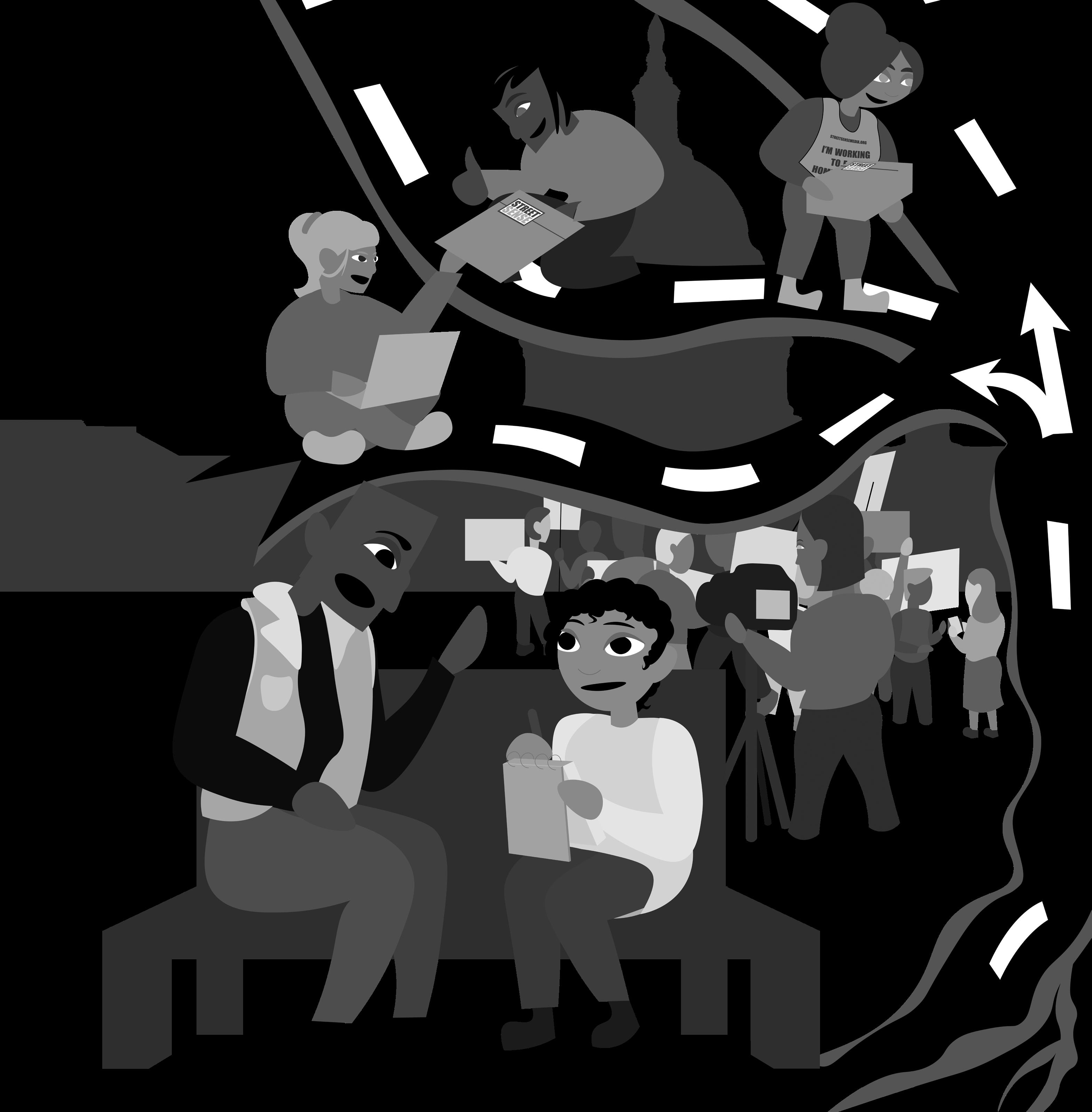
Abel Putu, Aida Peery, Al Edmonson, Akindele Akerejah, Amia Walker, Andre Brinson, Andrew Anderson, Angie Whitehurst, Anthony Carney, Beverly Sutton, Brianna Butler, Cameé Lee, Carlos Carolina, Charles Armstrong, Charles Woods, Chon Gotti, Chris Cole, Clinton Kilpatrick, Conrad Cheek, Corey Sanders,
Daniel Ball, Darlesha Joyner, David Snyder, Debora Brantley, Degnon “Gigi” Dovonou, Denise Hall, Dominique Anthony, Don Gardner, Donté Turner, Doris Robinson, Earl Parker, Eric Thompson-Bey, Erica Downing, Evelyn Nnam, Floyd Carter, Frederic John, Frederick Walker, Freedom, Gerald Anderson, Gracias Garcias, Greta Christian, Harriet Fields,
Henrieese Roberts, Henry Johnson, Invisible Prophet, Ivory Wilson, Jacqueline “Jackie” Turner, James Davis, James Hughes, Jeanette Richardson, Jeff Taylor, Jeffery McNeil, Jeffrey Carter, Jemel Fleming, Jenkins Dalton, Jennifer McLaughlin, Jermale McKnight, Jet Flegette, Jewel Lewis, John Littlejohn, Josie Brown, Juliene Kengnie, Kenneth
Middleton, Kym Parker, Laticia Brock, Lawrence Autry, Levester Green, L. Morrow, Marc Grier, Marcus McCall, Mars, Martin Walker, Mary Sellman, Maurice Carter, Melody Byrd, Michael Warner, Morgan Jones, Nathanial Piscitelli, Nikila Smith, Patricia Donaldson, Patty Smith, Peaceful Tobias, Phillip Black, Queenie Featherstone, Rachelle
COVER ART BY ROCHELLE WALKER, COVER DESGIN BY ANNEMARIE CUCCIA
COVER ART BY SYBIL TAYLOR, COVER DESIGN BY ATHIYAH AZEEM The Cover
Ellison, Rashawn Bowser, Reginald Black, Reginald Denny, Ricardo Meriedy, Richard “Mooney” Hart, Rita Sauls, Robert Vaughn, Robert Warren, Rochelle Walker, Ron Dudley, Ronnell Wilson, S. Smith, Sasha Williams, Saul Presa, Shuhratjon Ahmadjonov, Sybil Taylor, Tasha Savoy, Tony Bond, Tonya Williams, Vennie Hill, Warren Stevens, Wendell Williams
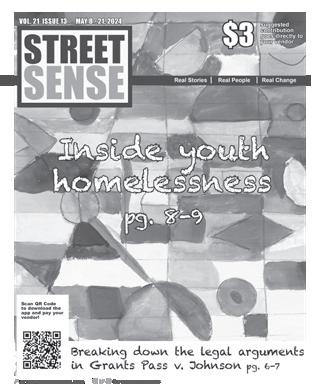
CHIEF EXECUTIVE OFFICER
Brian Carome
Editor’s note: This is an installment of a biweekly column “Encampment Updates.” In each edition, a Street Sense journalist will write about past and upcoming encampment clearings and closures in D.C. The government's policies and schedule can be found at: https://dmhhs.dc.gov/ page/encampments
D.C.’s Office of the Deputy Mayor for Health and Human Services (DMHHS) closed an encampment at the corner of 9th and Mt. Olivet St. NE on May 7. Two people living at the encampment had already moved out at the time of the closure, relocating to an encampment across the street.
The closure was originally scheduled for April 30 but was postponed for “additional logistics planning,” according to a DMHHS representative. According to DMHHS’s encampments webpage, the agency closed the encampment due to fire hazards.
“They don’t want me to go over there, but I’m gonna go over there,” Charles, who had been living at the encampment, said on April 30 before he moved to a grassy area on the other side of Mt. Olivet St. NE. “I’m gonna be hardheaded.”
One week later, at the time of the actual closure, tents were mostly deconstructed and few belongings remained compared to the previous week. Nobody was still living in the encampment. The DMHHS officials, with two garbage trucks and a bulldozer, cleared out the remaining items beginning at around 10:25 a.m. According to the DMHHS representative, no items were kept for storage.
The encampment had been partly cleared on March 14 when at least two people were living there. During that clearing, which was originally going to be a full closure, two of the three tents were left standing. DMHHS said in an email to Street Sense at the time that the full closure had been rescheduled for April 30 due to there being too much moisture on the ground to effectively conduct it.
The encampment had initially been identified for closure in January 2024 due to “two major fires” and “the presence of constant fire hazards,” the DMHHS representative wrote to Street Sense. Since then, between four and six residents have lived there at various times, the representative wrote. A sign notifying residents of the upcoming clearing had been posted near the encampment on March 26.
DMHHS publishes upcoming engagements at https://dmhhs.dc.gov/page/ encampments. Those include: Wed., May 15 at 10 a.m. at 20th/21st and E St/ Virginia Ave. NW, Wed., May 15 at 10 a.m. at 25th and Virginia Ave. NW, May 16 at 10 a.m. at 228 7th St SE (Eastern Market), and Mon., May 20 at 10 a.m. at 27th and K St. NW.
Update: After the print publication of last edition’s encampment update on the detainment of a pregnant woman living in an encampment in Deanwood, Tavoncia, a representative from DMHHS and Department of Behavioral Health (DBH) told Street Sense that DMHHS provided verbal notice to Tavoncia three and a half weeks before the closure of her encampment and that she had “verbally acknowledged” that she understood that the encampment would be closed. The representative also wrote that the sign alerting her of the closure had been placed at the encampment’s “primary entrance” that same day.
After the closure of the encampment, the DMHHS/ DBH spokesperson told Street Sense that Tavoncia left the site with her social worker, whom DMHHS requested to assist her. Tavoncia refused attempts of additional support from Community Connections, DBH, DMHHS, and the Metropolitan Police Department (MPD), the representative also wrote.
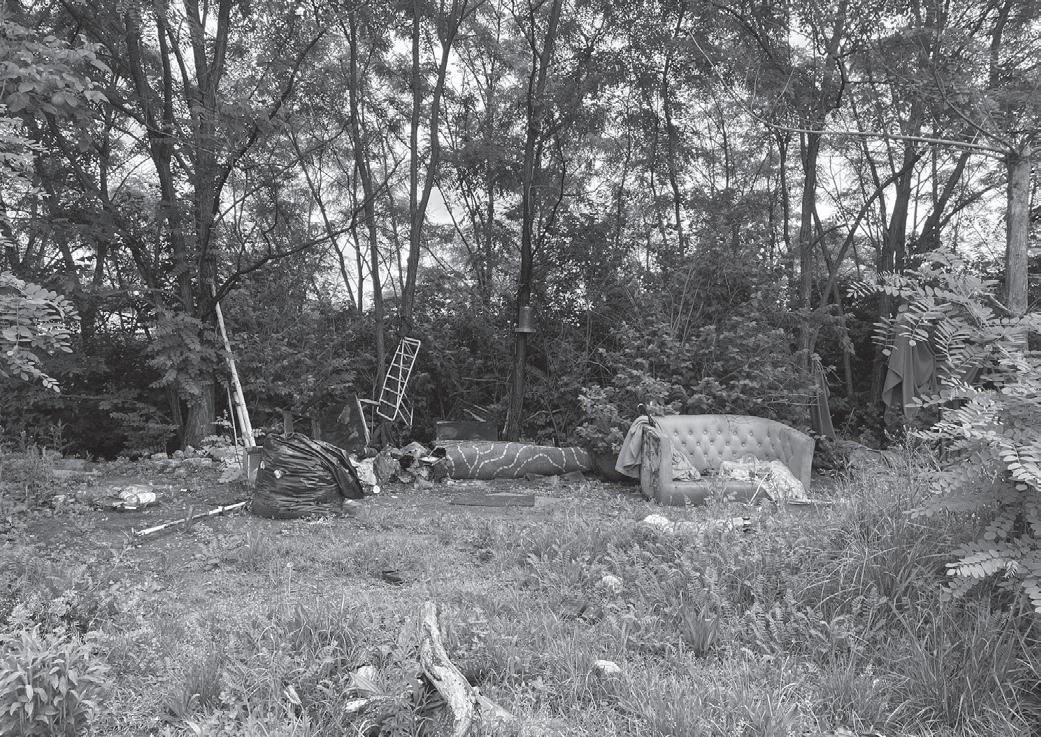
DIRECTOR OF PROGRAMS
Darick Brown
DIRECTOR OF VENDOR EMPLOYMENT
Thomas Ratliff
VENDOR
PROGRAM ASSOCIATES
□ May 15 is the last day for vendor surveys! Ten papers and $10 for 10 minutes of your time. See Thomas or Darick.
□ There are three theater performances coming up. Find out more at the office.
□ Sell copies of the Street Sense Media Photography Book with your papers! You pay $5 wholesale, you sell them for $20.
□ Find a list of vendor announcements at streetsensemedia.org/ vendor-info.
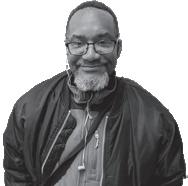
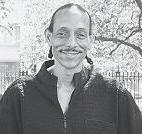
Marc Grier May 14
ARTIST/VENDOR
Conrad Cheek May 15
ARTIST/VENDOR
Read this democratically elected code of conduct, by vendors, for vendors!
1. I will support Street Sense Media’s mission statement and in so doing will work to support the Street Sense Media community and uphold its values of honesty, respect, support, and opportunity.
2. I will treat all others, including customers, staff, volunteers, and fellow vendors, respectfully at all times. I will refrain from threatening others, pressuring customers into making donations, or engaging in behavior that condones racism, sexism, classism, or other prejudices.
3. I understand that I am not an employee of Street Sense Media but an independent contractor.
4. While distributing the “Street Sense” newspaper, I will not ask for more than $2 per issue or solicit donations by any other means.
5. I will only purchase the newspaper from Street Sense Media staff and volunteers and will not distribute newspapers to other vendors.
VENDOR PROGRAM VOLUNTEERS
Ann Herzog, Beverly Brown, Madeleine McCollough, Roberta Haber
EDITOR-IN-CHIEF
Annemarie Cuccia
Aida Peery, Chon Gotti, Nikila Smith
DEPUTY EDITOR
Donte Kirby
EDITORIAL INTERNS
Andrea Ho, Margaret Hartigan, Nora Scully
SOCIAL MEDIA INTERN
Azaria Jackson
ARTISTS-INRESIDENCE
Bonnie Naradzay (Poetry), David Serota (Illustration), Leslie Jacobson (Theater), Roy Barber (Theater), Rachel Dungan (Podcast), Willie Schatz (Writing)
OPINION EDITOR (VOLUNTEER) Candace Montague
EDITORIAL VOLUNTEERS
Annabella Hoge, Anne Eigeman, August Ditcher, Benjamin Litoff, Cari Shane, Casey Bacot, Chelsea Ciruzzo, Dakota
Bragato, Dan Goff, Grier Hall, J.M. Acsienzo, Josh Axelrod, Kate Malloy, Kathryn Owens, Lenika Cruz, Micah Levey, Miles Wilson, Rachel Siegal, Roman Peregrino, Ryan Bacic, Taylor Nichols, Zach Montellaro
6. I will not distribute copies of “Street Sense” on metro trains and buses or on private property.
7. I will abide by the Street Sense Media Vendor Territory Policy at all times and will resolve any related disputes with other vendors in a professional manner.
8. I will not sell additional goods or products while distributing “Street Sense.”
9. I will not distribute “Street Sense” under the influence of drugs or alcohol.
10. I understand that my badge and vest are property of Street Sense Media and will not deface them. I will present my badge when purchasing “Street Sense” and will always display my badge when distributing “Street Sense.”

Two months after collective bargaining began between Unity Health Care (UHC) and its unionized providers, the organization representing the providers’ union has filed an unfair labor charge against UHC for failing to bargain in good faith, retaliating and silencing workers. The providers hope to reach a collective bargaining agreement quickly to improve working and safety conditions and better serve community members.
“Unity continues to disrespect Washington, D.C.’s essential health care workers through unsafe working conditions, through a culture of bullying and intimidation, a revolving door of overpaid executives, lack of transparency and communication, lack of breaks or administrative time for these providers, withholding of workers pay and schedules that have left us overworked and exhausted,” said Cary Lane, the northeast regional director for the Union of American Physicians and Dentists (UAPD), which represents physicians and medical practitioners at UHC, at a press conference on April 30.
UHC was founded in 1985 to serve families and individuals experiencing homelessness, expanding throughout the years to include care for more than 90,000 patients through street outreach at sites such as community clinics and the D.C. Jail. Providers unionized in 2023 after reporting the workplace conditions and administration at UHC forced them to prioritize the number of patient visits over care.
Providers met with a team representing UHC in March to discuss issues like workplace safety, financial transparency, and high staff turnover. Since then, however, there have been no additional negotiations or meetings, according to lead negotiator Steve Kaufmann. He blames the delay on UHC’s failure to respond to substantive requests.
“There’s only been one face-to-face meeting for a union that was certified on Dec. 5, and now we’re in May,” Kaufmann said in an interview with Street Sense. “It’s just not consistent enough to get a real dialogue going on the issues that need to be resolved.”
When asked about the unfair labor charge, a UHC spokesperson said that bargaining sessions are “ongoing.”
“We are disappointed the UAPD has chosen to make claims in the press/public rather than to continue to work with us directly. Unity recognizes the important role that our providers play in caring for our patients and we remain committed to negotiating in good faith with the UAPD,” the spokesperson wrote in a statement to Street Sense.
The next meeting is tentatively scheduled for May 14, two months after the first, according to Emily Zucker, a family doctor at UHC.
Providers also alleged that UHC has been retaliating against workers. For recent performancebased salary increases, Zucker said union members were not paid while non-unionized staff members were. A UHC spokesperson said that merit increases were paid “retroactively” as of the first pay period in Jan. 2024, but did not give a reason for the delay.
The delay is difficult for physicians and practitioners — especially providers in the D.C. Jail, who say that workplace conditions prioritize the number of patient visits over quality of care.
Alexander Curtis, a family medicine doctor who resigned from UHC in February, said the failure to address safety issues drove him to leave after a year and a half with the organization.
“One of the practices was…the combination of almost no support for physicians in the role we play in the organization and the high volume of patients that we were expected to see,” said Curtis. “If one of those two things changed in a favorable direction, it would be a safer environment for the patients and those of us caring for them.”
With negotiations stalling, providers are worried that any delay will only exacerbate the staffing shortage. Providers are also not paid for their time spent in collective bargaining meetings so they said scheduling becomes an issue when meetings require a full day off from paid work.
“I really want to work together to come up with a solution that’s good for providers as well as the organization, and if they can’t meet with us that’ll never happen,” Zucker said.
ast month, the D.C. Department of Health (DOH) gave several street vendors with cease-and-desist orders. If the vendors, who largely draw an income from selling food, clothes, and other products, are found to be in violation of these orders, the orders say they will be charged $1,000 each day — a staggering cost for many.
LThe orders came as a shock to street vendors and their supporters, in light of the recent legislative push to decriminalize street vending. In April 2023, the D.C. Council unanimously voted to pass the Street Vendor Advancement Amendment Act, which loosened restrictions around street vending.
At the time, this was an enormous victory for street vendors, as well as local organizations like Beloved Community Incubator and Vendedores Unidos, which have been organizing for the decriminalization of street vending for years.
The bill removed criminal penalties for street vendors who operate without a license, lowered the price of obtaining a license, and allowed the mayor to establish approved sidewalk vending zones. Under the new law, street vendors can also obtain a “microenterprise home kitchen permit” so that they can legally sell food they have cooked at home. However, vendors say they have encountered obstacles that stand in the way of securing these permits and licenses.
Street vending has a long and storied history in the District, especially in the area surrounding Columbia Heights and Mount Pleasant. Historically, street vending has primarily been dominated by Black, Latine, and Indigenous workers, who often face barriers to traditional employment. Consequently, street vending has been a path of economic independence and freedom that advocates say is worth government protection.
“Street vending is a way of life. This is how people move through the city day to day,” said Dekima Thomas, the street implementation advocacy coalition communicator for Beloved Community Incubator, an organization that supports small businesses run by poor and working-class people and people of color. “D.C. isn’t working to keep street vending alive.”
Although the Street Vendor Advancement Amendment Act went into effect in October 2023, many advocates say the law plays out very differently on the streets, as vendors struggle to benefit from the new protections the law established.
“It is clear to everyone that the mayor and her executive agencies were never a fan of reforming D.C.’s street vending licensing regime,” said Geoff Gilbert, the legal and technical assistance director of Beloved Community Incubator, in a press release. The new protections went into effect without the mayor’s signature. “Clearly, Bowser is not above weaponizing her agencies to simply undo legislation she does not like.”
Thomas told Street Sense that Bowser has scapegoated street vending for rising crime rates and perpetuated false narratives that vendors are responsible for shoplifting. In January, ABC 7 News reported Bowser explicitly said decriminalizing street vending has to be reversed.
“Bowser has supported rumors about the vendors stealing from CVS and selling the products on the streets,” Thomas said. “There are plenty of organizers who are out on the streets daily and no one has ever seen anyone steal anything. Most vendors sell fruits or clothes.”
Wayne Goodwin, who has been vending food with his mother in Columbia Heights for the past four years, relies
on street vending for his livelihood. Because he suffers from epilepsy, Goodwin has had to seek accommodations, such as for where he is allowed to vend, from DOH and the Department of Licensing and Consumer Protection (DLCP).
“People don’t see street vending as real businesses,” Goodwin told Street Sense. “The main challenge I have faced is that many resources are only set aside for businesses that are brick and mortar.”
Goodwin obtained his microenterprise home kitchen permit and was also granted approval to vend in Adams Morgan and Woodley Park Zoo. Yet it continues to be a priority for him to advocate for his fellow vendors, especially vendors with health difficulties and vendors who sell food. In particular, he said that DOH and DLCP should “[up] the pace” on distributing permits for the microenterprise home kitchen.
According to DOH, the five vendors who were served cease and desist orders were serving “potentially hazardous foods.” “DC Health is committed to uphold the highest standards of food safety to ensure the wellbeing of our community,” a spokesperson wrote in an email to Street Sense, adding that licensing was up to DLCP.
Thomas said the process of navigating documentation and obtaining licenses has been opaque and confusing for vendors, many of whom do not speak English. She told Street Sense that guidelines for obtaining a microenterprise home kitchen permit are still unclear and vendors say they are left unsure of the documents to submit.
Thomas recounted a recent incident where she accompanied four Habesha vendors to renew their licenses. These vendors had been vending for over 20 years, but their licenses had expired during the COVID-19 pandemic.
Thomas had asked for interpretation services from English to Amharic. However, she said she was informed that no such services were available. (The D.C. government is legally obligated to provide interpretation services for Amharic speakers upon request.) Thomas said the city also gave the vendors the wrong document to fill out.
“We were there for two hours and nothing was accomplished. There was just so much confusion. If I’m confused, I know that these other people who speak other languages and need interpretation are even more confused,” Thomas said. “DOH and DLCP must blend together to figure out what is accurate.”
For vendors, the long process to benefit from new and existing street vending protections has been discouraging.
“These vendors are tired of depending on welfare. They want to get back to vending,” Thomas said. “But so much has been inhibiting them.”
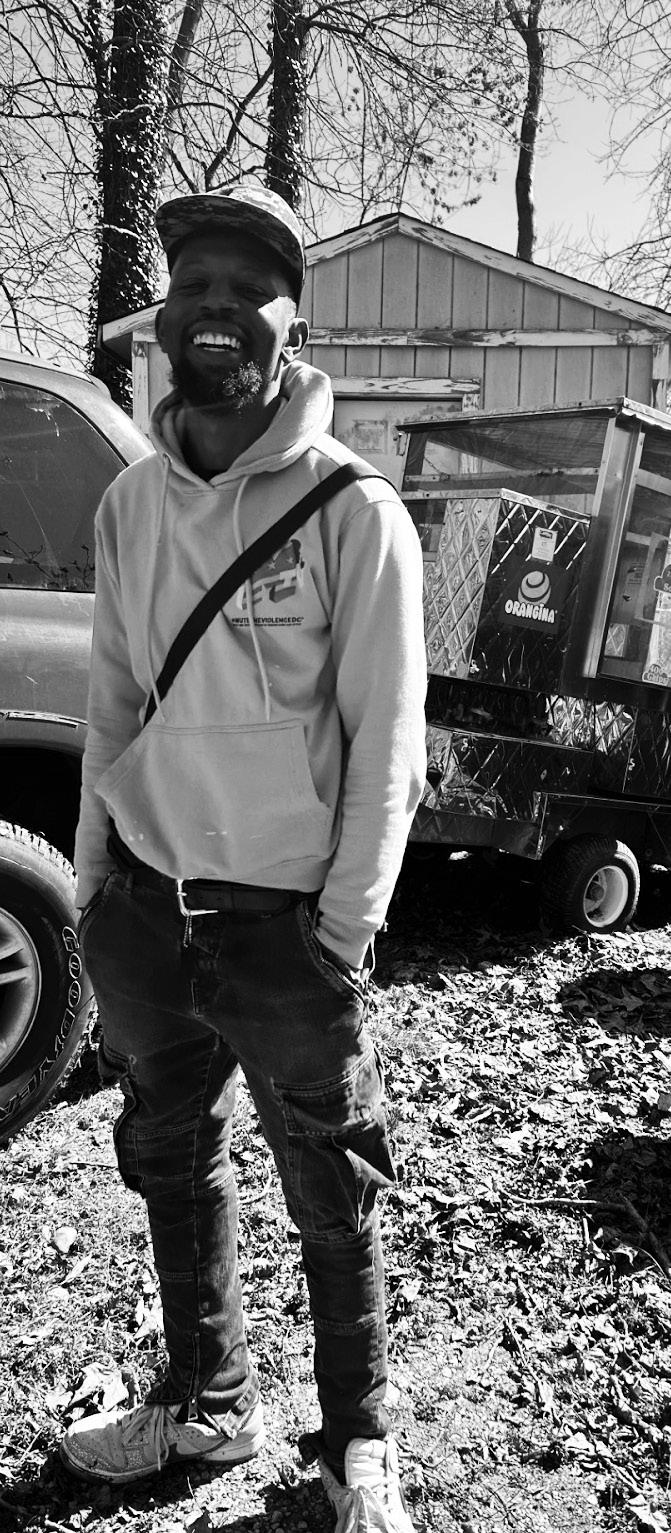
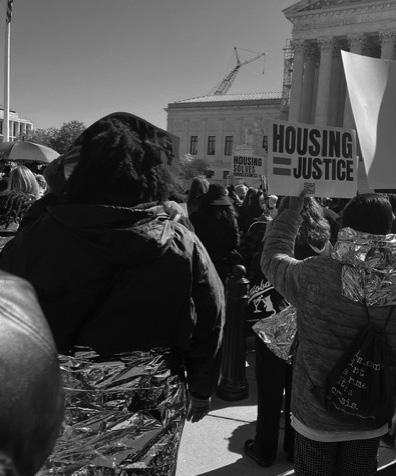
On April 22, the U.S. Supreme Court heard oral arguments in Grants Pass v. Johnson, widely regarded as the most consequential case concerning homelessness in decades.
At issue: can cities punish people experiencing homelessness for sleeping on public property when there is no alternative shelter available?
The case comes amidst both surging homelessness rates and intensifying criminalization of unhoused people. The Department of Housing and Urban Development (HUD) estimates that a record 653,104 people experienced homelessness on a single night in 2023. Meanwhile, local governments –– facing political pressure and overburdened social services –– are increasingly clearing tent encampments, despite the costs and health risks for encampment residents. In D.C., encampment closures have spiked since 2022. U.S. cities have instituted a bevy of laws restricting unsheltered homelessness in recent years, per a National Homelessness Law Center (NHLC) report. By 2019, 51% of surveyed cities had implemented at least one law limiting sleeping in public, a 50% increase since 2006. Many legal experts predict that, no matter the outcome, the court’s ruling will have sweeping ramifications both for the rights of unhoused people and for the approaches local governments take to address homelessness in their communities. The legal arguments made by the city of Grants Pass in Oregon, by the Department of Justice, and by plaintiffs experiencing homelessness diverge widely. Here’s what you need to know.
The case dates back to 2018, when three unhoused people sued Grants Pass for its enforcement of an ordinance that bans sleeping in public spaces and levies stiff penalties for violators. The lead plaintiff, Debra Blake, who died before the case reached the Supreme Court, accrued over $5,000 in fines –– which start at $295, nearly double to $537.50 when left unpaid, and can be elevated to jail time after two offenses. Critics argue the statute renders it functionally impossible for people experiencing homelessness to exist in the city without being subject to prosecution; despite being home to approximately 600 people experiencing homelessness, the municipality has only 130 shelter beds (provided by a religious organization with high barriers to entry). Local
lawmakers have even hinted the law was intended to criminalize homelessness, with the city council president saying the goal was to “make it uncomfortable enough for [people experiencing homelessness] in our city so they will want to move on down the road,” according to Vox.
In 2022, the case reached the Ninth Circuit Court of Appeals, which upheld its 2018 ruling in a similar case, Martin v. Boise, that unhoused people cannot be punished for sleeping in public when no other shelter is available. In the Grants Pass case, the Ninth Circuit found the ordinance violated the residents’ constitutional protection from cruel and unusual punishment, penalizing individuals “based on their status of being involuntarily homeless.”
The concept of “status crimes,” which criminalize a state of being, rests on avidly debated Supreme Court precedence. In its 1962 ruling in Robinson v. California, the court ruled the state of California could not make it illegal to be addicted to drugs, but could punish the use of drugs. In other words, it is unconstitutional to punish an “involuntary status,” like being an alcoholic, outright; however, laws can limit behaviors associated with that status, like drinking alcohol in a public space. The distinction between punishing a status and punishing conduct associated with that status played a central role in the oral arguments heard by the court in Grants Pass v. Johnson
Theane Evangelis, the lawyer arguing on behalf of Grants Pass, made two central claims before the court. First, Evangelis argued the Ninth Circuit was wrong to use the Eighth Amendment to protect conduct related to the status of homelessness. In the city’s view, under Robinson, laws must be allowed to prevent some actions, like sleeping outside, even if those actions are definitional elements of a status, like homelessness.
The court’s liberal minority objected to this characterization. Justice Elena Kagan pointed out that sleeping is “a biological necessity” that, like breathing, is universally necessary to stay alive and thus different from the use of drugs punishable under Robinson. The city’s ordinance criminalizes the mere existence of people experiencing unsheltered homelessness, who cannot, by definition, sleep anywhere except in public spaces, she concluded.
However, several conservative justices appeared amenable to the city’s argument, disagreeing with the idea the plaintiffs were preemptively protected from prosecution when engaging in banned behavior, even if it was fundamentally linked to their homelessness. Justices Brett Kavanaugh and Neil Gorsuch suggested unhoused people charged under the ordinance should instead be required to make a “necessity defense,” taking their case to a local court to argue sleeping in public was unavoidable.
This could present practical concerns, Maria Foscarinis, the founder of the NHLC and an adjunct professor at Columbia Law School, argued in an interview with Street Sense. She called this notion “absurd,” noting this approach “puts the burden on” people experiencing homelessness by requiring them to seek out legal representation and prove their vulnerability.
Second, the city claimed the Ninth Circuit’s ruling in Martin inappropriately limited the tactics cities could use to address unsheltered homelessness. Justice Amy Coney Barrett shared this concern, asking whether cities would still be able to restrict the use of fires or tents if the court ruled in favor of Johnson.
Liberal justices objected to considering this line of thought. According to Kirsten Anderson of the Southern Poverty Law Center, these broader questions are “not at issue in this case, where we have a very extreme ordinance that bans people from sleeping with as little as a blanket… at all places and at all times in the city.”
Broadly, the city argued homelessness is a complex public policy issue better left to local policymakers, maintaining that “[c]ourts not only lack the legal authority, but also the practical competence to serve as ‘homelessness policy czars.’” Justice John Roberts appeared sympathetic to this contention, pointedly asking an opposing lawyer why “these nine people” are best situated to “weigh those policy judgments.” On the other hand, Justice Sonia Sotomayor repeatedly questioned what would happen to unhoused people should the court allow strict criminalization nationwide. If every town “lacks compassion,” she asked, “[w]here are they supposed to sleep? Are they supposed to kill themselves, not sleeping?”
Building on Sotomayor’s point, advocates argued banning encampments will not solve the issue of homelessness.“Homelessness has grown because more and more hardworking people struggle to pay rent, not because we lack ways to punish people sleeping outside,” Jesse Rabinowitz of the NHLC said. A ruling limiting the criminalization of homelessness, he said, would encourage cities to focus on tenable and evidence-based interventions to prevent homelessness.
“The only solution to homelessness is more housing and supportive services,” said Sarah Saadian, senior vice president of public policy and field organizing at the National Low Income Housing Coalition (NLIHC). “[I]f folks are really wanting to solve this problem, that’s where they should focus, not on arrests and fines.”
The Department of Justice (DOJ) also weighed in during oral arguments, staking out a narrow middle ground. Edwin Kneedler, the deputy United States solicitor general, argued that, while the Ninth Circuit’s ruling in Martin v. Boise is largely sound, the court made a mistake by not
requiring individual assessments of whether individuals were acting involuntarily. The DOJ argued the Eighth Amendment protection only applies if someone truly has nowhere else to sleep and that, as a result, “meaningful inquiry into the particular circumstances of the individuals to whom the challenged ordinances may be applied” is required.
In practice, this would entail officers assessing whether a person sleeping outside could ostensibly be housed –– either by friends or family or in a shelter within the municipality (or nearby, as Roberts suggested). However, advocates cautioned this would quickly become tricky. Many shelters have policies capping the number of days people can remain in the facility, whether they can stay with a partner, or whether they can bring a pet. In other words, Anderson summarized, while a shelter bed may be technically available, it may not be “physically … or legally accessible to [someone] because of [these] limits.”
Furthermore, Foscarinis and Anderson both pointed out that the number of people experiencing homelessness routinely outpaces the number of available shelter beds in cities across the country, making it unnecessary to question each person. “What,” Anderson asked, “is the purpose of an individualized inquiry in that situation?” In general, critics argued, sleeping in public spaces is the last resort and on its face suggests that someone has no suitable alternatives. “The idea that people choose to be homeless,” Rabinowitz concluded, “is just not true.”
Kelsi Corkran, Supreme Court director at the Institute for Constitutional Advocacy and Protection, laid out two claims on behalf of the plaintiffs experiencing homelessness.
First, Corkran argued that the Grants Pass ordinance is unconstitutional because it effectively punishes a status, even if it does not name it. By banning sleeping in public, she noted, the statute prohibits a universal human function but punishes only those who have no access to a private space. “Sleeping outside,” Corkran stated, is functionally “part of the definition of homelessness.”
Thus the question before the court, she argued, is “whether there’s any meaningful difference between a law that says being homeless is punishable and a law that says being homeless while breathing or sleeping or blinking is punishable.” Because both versions “make people with a status [of homelessness] endlessly and unavoidably punishable if they don’t leave Grants Pass,” Corkran argued, “[t]he answer is no.”
In response, some justices questioned whether the status of homelessness is defined too broadly. For instance, Roberts asked whether, unlike a lifelong struggle with addiction under Robinson, “the status of homelessness can change from one time to another” and become too fluid to define. Getting temporary accommodation at a friend’s home or in a shelter, Corkran responded, does not mean that a person is no longer experiencing homelessness, which is defined under
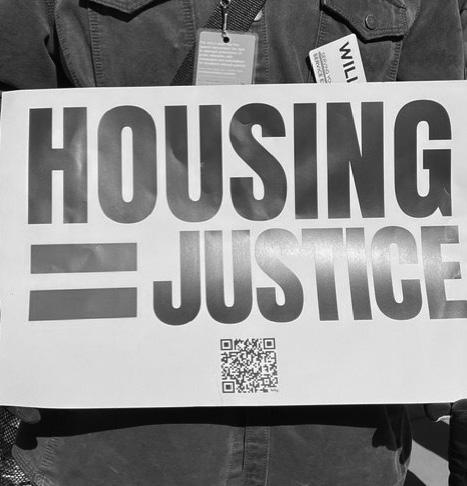
HUD guidelines as lacking “a fixed, regular, adequate night-time address.” During questioning, Roberts appeared to confuse accessing shelter with ending an episode of homelessness. Gaining “shelter itself does not end homelessness,” Anderson clarified. “Homelessness ends with a home.”
Second, Corkran argued that even without anti-sleeping laws, cities retain “an abundance of tools to address homelessness.” Contrary to claims filed by local governments in support of Grants Pass, she noted, cities maintain the ability to clear encampments and enforce a range of public safety and health regulations. “The only tool the city wants that it doesn’t have,” Corkran concluded, “is authority to impose a 24/7, city-wide sleeping ban that forces its homeless residents to either move to another jurisdiction or face endless punishment.”
Advocates agreed, adding that cities also maintain the ability to invest in long-term solutions. Amanda Aykanian, an assistant professor in the School of Social Work at the University at Buffalo told Street Sense that, while cities are overwhelmed and working to “get rid of the problem,” they could instead prevent homelessness by investing in “affordable housing, … living wage jobs, … [and] ramping up … the service offerings that we have.”
In general, the direction of the national conversation about homelessness is discouraging to advocates hoping to see ambitious solutions, rather than penalties and fines, take center stage. “I think it demonstrates how far off base we are when it comes to having serious solutions to address homelessness,” Anderson said.
Advocates and legal experts agree that the case is likely to have far-reaching consequences no matter what route the court takes. Should the justices rule in favor of Grants Pass, Foscarinis predicted, “[i]t’ll be an open invitation to cities to criminalize … their homeless residents.” Akanyian noted that this extends beyond ordinances banning sleeping; laws prohibiting “loitering, panhandling, sitting, blocking sidewalks,” and other behaviors target unhoused people across the nation and could be bolstered by a ruling against the unhoused plaintiffs.
Additionally, Rabinowitz argued that giving a green light to the criminalization of homelessness could exacerbate racial injustice. “[P]eople of color are more likely to be arrested, stopped, fined, jailed, [and] shot by police,” he said. “This approach ... increases people’s contact with the police in ways that could be harmful and, indeed, deadly.”
But if the court decides in favor of the residents, Foscarinis said, there is room for hope. “I think what that will do is just reinforce to cities … nationwide that they have to come up with some other response to homelessness” that centers housing rather than handcuffs. “And that,” she concluded “would be a good thing.”
A ruling is expected sometime in late June.
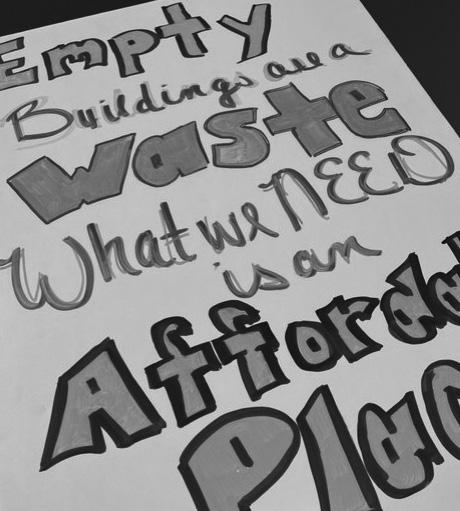
Diamond Dumas was 15 when they first left home. A Floridian teenager with few financial resources, Dumas’s unstable home situation led them to crash on friends’ couches for months at a time while trying to finish high school. The odds were stacked against them; when students experience homelessness, their academics suffer.
But still, Dumas (who is nonbinary) graduated high school. A few years later, they graduated college, too — all the while, experiencing homelessness in a state that ranks among the most hostile to the young homeless community.
Those who experience homelessness under the age of 25 face a unique set of challenges compared to older adults experiencing homelessness. Many have been in foster care or have had an otherwise unstable housing situation before becoming homeless. A large share, like Dumas, are members of the LGBTQ+ community.
While D.C. has some policies and programs that have made the city a leader in combating youth homelessness, it has failed to deliver on promises of ending youth homelessness entirely by 2022. Recent studies show the city lacks policies that exist elsewhere in the U.S. that could help youth experiencing homelessness access housing, like a straightforward process of petitioning for emancipation. Meanwhile, local leaders are debating the best ways to address youth homelessness, including whether the city should issue an updated plan to end homelessness for young people.
But it’s not just a local problem. All of the experts Street Sense spoke with about young people experiencing homelessness, both in D.C. and nationwide, agreed on one thing: youth homelessness is in a state of crisis and demands significant legislative and community action.
About 4.2 million young Americans experience homelessness each year. A sixth are unaccompanied minors. Pregnant or parenting people, members of the LGBTQ+ community, and people of color are most likely to experience homelessness.
In D.C., 2023 counts estimated just over 700 minors experience homelessness with their family on any given night, as well as there are 521 youth ages 18-24. One study estimates that out of every 1,000 minors living in D.C., 4.8 experience homelessness, and that for every 1,000 people between 18 and 24 years old in the District, 8.9 experience homelessness.
However, experts believe these estimates underestimate the number of people experiencing homelessness because people who couch-surf but lack stable housing are often not counted.
Certain demographics — especially young people who already experience structural inequalities — are more likely to experience homelessness in their teens or twenties. According to research from the National Network for Youth, Black and Hispanic youth are 83% and 33% more likely, respectively, to experience homelessness compared to their white counterparts. And LGBTQ+ youth are twice as likely to experience homelessness when compared to their non-LGBTQ+ peers.
Youth who have been in foster care, too, are more likely to experience homelessness. According to data from the National Foster Youth Institute, 20% of youth in foster care experience homelessness after their time in foster care ends at the age of 18. And a whopping half of all people experiencing homelessness today spent some of their childhood in foster care.
Locally, 40% of youth experiencing homelessness in D.C. identify as LGBTQ+. The multitude of challenges affecting D.C.’s young homeless population — including the possibility of discrimination based on race or sexual orientation, unstable family dynamics and a lack of opportunities for accumulating wealth, make youth homelessness a complex problem.
To support young people facing these overlapping challenges, some people with lived experience of homelessness, like Dumas, have stepped in.
After graduating college, Dumas became the training and capacity building manager at the Pittsburgh-based youth advocacy nonprofit Youth Collaboratory, where they help train staff in caring for homeless or housing insecure youth. They said emancipation laws and fewer opportunities to amass financial resources are among the most significant challenges unique to those experiencing homelessness as young people.
People under the age of 25 often have not had the chance to build credit and accumulate financial resources, like some of their older peers. That puts them at a disadvantage when searching for jobs and housing, where credit scores, access to transportation, and a way to build credit are essential. Through both their work with Youth Collaboratory and their lived experience with homelessness, Dumas knows these challenges well.
“You probably don’t have credit. You probably don’t even have a car to sleep in. So it’s like you’ve had less life to gain some of these resources that would be considered yours,” they said. “So you really are relying on people and connections a lot more than adults who have had that time to establish those relationships.”
To get better access to financial opportunities (like full control over one’s earnings) and immunity from laws specific to minors (like curfew laws) some minors experiencing homelessness seek to be emancipated. But many states have barriers to emancipation — such as a lengthy and complicated process that may be incomprehensible to a young person without a lawyer.
D.C. does not have laws detailing the process of emancipation but instead offers a definition of emancipation, which can be confusing to minors seeking to petition for
emancipation. As a result of this and similar emancipation policies in other states, many “unaccompanied minors,” or youth experiencing homelessness without their family choose not to seek our emancipation — especially if they are near their 18th birthday.
“To become emancipated is very much a privilege,” Dumas said. “You have to become homeless at exactly the right time to make it worth the financial investment, to go through all those legal court proceedings to become emancipated. You have to have money. You have to be the right age. You have to have support to go through all of that,” they added. Dumas, because they were almost 18 and would soon gain the rights of an adult anyway, ultimately opted not to get emancipated.
Dumas never lived on the street; instead, they described their experiences with homelessness as more akin to “couchsurfing,” or living with friends or family. That is relatively common for youth who have experienced homelessness: one study showed that around 65% of homeless youth had couchsurfed in the previous 12 months.
Dumas, who lived at their partner’s residence for a time, as well as with friends during high school, found that couchsurfing did not provide the kind of housing stability they needed to thrive.
“You have to have a backup plan or know where to go,” Dumas said. “If me and my partner don’t work out, like, where would I be?”
After they earned a scholarship and matriculated to college, Dumas found the housing stability they gained was as impactful as the education, though they still struggled to balance classes with paying for rent and tuition.
“I’ve definitely viewed college as a housing opportunity instead of an educational opportunity,” they said.
To illustrate what homelessness looks like for young people today, in January, the National Homelessness Law Center (NHLC) released its annual set of data comparing how different U.S. states and the District of Columbia are addressing youth homelessness. The index ranks states by analyzing their policies on youth homelessness-related issues, from rent control laws to parental notices for emancipation to immigration status discrimination. Overall policy scores range from -24.5 (“negative”) to 94.5 (“high”).
D.C.’s overall policy score in 2024 was 28.5, a “fair” ranking and just below Maryland’s score of 29. Neighboring Virginia scored 18.5, a “low” score. The highest score of 45 (“fair”) went to California.
The index breaks down the scores by policy. In some areas, D.C. seemed to be a trailblazer, allowing minors to obtain governmental IDs without parental consent and establishing protections for renters who take their landlords to court or exercise other tenant rights (in some states, landlords are not explicitly banned from taking action against a tenant who complains to a government agency).
In areas such as access to legal aid and accessible public housing units for disabled people, however, D.C. received lower scores. For instance, D.C. lacks a right to counsel for eviction appeals, meaning that tenants who believe they have been wrongfully evicted from their homes do not have a right to a court-appointed lawyer to defend them. D.C. also has a high cost of living—ranking 5th in highest housing costs. This poses extreme challenges to young people in D.C. trying to access housing on their own for the first time.
Under the previous scoring system, D.C. had the highest score in the nation, earning 90 out of 100 possible points in 2021. But since then, D.C.’s place in the survey has dropped to 6th, although states are not explicitly ranked in the index. The new scoring system, which debuted this year, resulted from a series of NHLC focus groups with youth with experiences of homelessness. The goal of the new design is to
“pivot from traditional harm reduction approaches to policies that, if implemented, would actually end youth homelessness,” explained Jeremy Penn, an attorney with NHLC.
The lower scores reflect a focus on growth, Penn said. Rather than comparing states’ scores directly, the new metrics are intended to demonstrate that each U.S. state has space to improve how they care for homeless youth and implement policies that could end youth homelessness altogether. D.C. especially earned few of the points associated with educationrelated questions, suggesting the city has room to improve to ensure young people experiencing homelessness can still access learning opportunities.
“We don’t want the states to be competing against each other,” Penn said. “We want them to be competing against the best possible version of themselves.”
Despite the interconnected risk factors and causes of youth homelessness, government agencies and advocacy organizations have made some strides in reducing youth homelessness.
The D.C. government offers some resources to youth experiencing homelessness through Solid Foundations, a fiveyear plan the city issued in 2017 to end youth homelessness by 2022.
That, however, has not happened, and despite implementing some programs to reduce youth homelessness, it remains a problem D.C. The Solid Foundations plan, however, did bring about the establishment of a Youth Advisory Board (YAB) and funding for youth Rapid Rehousing, a representative from D.C.’s Interagency Council on Homelessness (ICH) representative said. As a result, youth homelessness has been on the decline in D.C., and by 2021 twice as many shelter beds were available to youth than in 2017.
Most of the housing resources the city offers for youth in need of housing are “transitional” homes, like group homes and roommate living situations, the ICH representative wrote. Some transitional housing options serve mainly LGBTQ+ youth or domestic abuse survivors. St. Ann’s Center for Children, Youth, and Families, specifically, offers services and transitional housing for young pregnant or parenting women at risk of homelessness.
Due to age restrictions for accessing many homeless shelters in D.C., finding shelter as a young person in D.C. can be challenging. The ICH representative, however, highlighted two youth-only shelters: Zoe’s Doors, a 24-hour drop-in center, and Covenant House, which operates several low-barrier shelters. Aside from those, additional youth shelter and drop-in space is available—including the Latin American Youth Center and two spaces operated by the Sasha Bruce Network.
In addition to shelters and transitional housing programs, the city has a few voucher programs available for youth, including Rapid Rehousing and Permanent Supportive Housing (PSH).
Compared to families and adults, young people are far less likely to access permanent housing in D.C., a fact an August 2023 Washington Post article highlighted. According to slides from an ICH meeting, 98% of youth who were homeless in 2022 were not permanently housed by the city that year. But Rachel White, a senior youth policy analyst at DC Action, a youth advocacy organization, said that the figures suggesting only 2% of D.C.’s homeless youth access housing don’t tell the whole story.
“While those numbers are correct, it doesn’t show the full picture of what’s truly going on in the homelessness sector,” she said. Many of the services aimed at youth — like transitional housing and going to college — do not count as permanent housing, and thus are not included, and minors cannot qualify for housing vouchers.
Still, she acknowledged the shortcomings in D.C.’s efforts to understand and combat youth homelessness. She pointed
to a lack of funding for D.C. homeless service providers as a cause of the lack of quality data.
“Youth homelessness provider contracts are underfunded based on the need,” White said, adding that in her organization’s case, more funding would allow DC Action to hire staff to collect and analyze data on youth homelessness. More accurate data could also result in more targeted efforts to assist youth in need of housing, she said.
D.C. government’s efforts to end youth homelessness have largely been driven by the Solid Foundations Plan. But now, partially due to concerns about staff capacity and time, and because the plan is no longer legally mandated, the ICH is considering not releasing an updated plan, instead folding youth homelessness into the city’s broader plan to end homelessness, Homeward D.C. 2.0, according to testimony from ICH Director Theresa Silla at an oversight hearing on Feb. 29.
“We do not need a special plan to end youth homelessness,” Silla said, arguing the city doesn’t make individual plans for other subpopulations that may require unique services, like returning citizens or aging adults. “If anything, what I need is an opioid response plan.”
She suggested instead working to make it easier for young people to access the supports available in the adult system. While Solid Foundations supported the creation of a dedicated youth system, some providers have also worried this has separated young adults from opportunities in the broader system for which they are eligible. “We need to house as many people as quickly as possible,” Silla said.
At the same hearing, Kimberly Perry, the executive director of DC Action, highlighted shortcomings in D.C.’s response to youth homelessness, including the fact that there have been few updates to Solid Foundations.
“It’s not sufficient for the ICH to squeeze in a few sentences regarding youth experiencing homelessness into Homeward DC or even combine reporting numbers in oversight testimony,” Perry said. “Because youth homelessness is a unique and complex experience that requires a completely separate system of support, a separate strategic plan is necessary.”
On the national level, some action has been taken, too. A Way Home America, a homeless youth advocacy organization, outlined policy suggestions in The New Deal to End Youth Homelessness— including changes to federal housing, immigration, and economic policies. Josh Cogan, A Way Home America’s director of public policy, said the policy suggestions were developed with input from youth with lived experiences of homelessness.
In February, members of Congress introduced the Youth Homelessness Guaranteed Income Pilot Program Act, which would provide direct cash assistance to emancipated minors and people under the age of 30 experiencing homelessness to help them pay for housing. Movement on that bill, however, has stalled since its introduction.
Cogan said that such a law could do a lot to help young people experiencing homelessness. But today, there are few direct cash transfer programs in place anywhere, despite evidence that similar programs in Canada reduce the days the people experiencing homelessness spend without shelter.
“This piece of legislation is so monumental because it is one of the first for this population of homeless youth and young adults at the federal level,” Cogan said.
According to advocates and those with lived experience, policies like direct cash transfer programs, as well as support organizations like Youth Collaboratory, where Dumas works, have been shown to help reduce homelessness among young people.
For Penn, the problem of youth homelessness is not unsolvable. “It’s solvable. It’s unnecessary. It doesn’t have to exist. We can do something about it,” Penn said.
aving been through several stages of homelessness — living in my own gutted house without utilities; living years in a vehicle; living at the place where I worked; living in shelters; and living out in the open — I've observed many people who provide services to homeless and low-income communities. Unfortunately, it often seems as though they did little research about homeless people in the area they service, and they aren’t as helpful as they could be. For instance, people often bring far more food than those who get it can refrigerate and reheat, since most homeless people have neither a fridge nor a stove. As a result, most of the food is wasted or spread over the ground to feed the rats. Or they put condiments like mayonnaise directly in the food, but some people hold onto food (especially sandwiches) to eat later that day or the next. Without refrigeration, some of that food grows undesirable bacteria.
HPeople tend to distribute food and supplies when it is most convenient for them, mostly on dry and warm weekends and holidays. Or they show up back to back with other groups that give out similar resources. They often bring the same amount of food and supplies every week; not realizing that early in the month is when many homeless people get checks and food stamps. When that money is all gone, lines start getting longer. With few exceptions, most groups bring the same things: hats, gloves, scarves, soap, toothpaste, and toothbrushes. The foods tend to be high in salts, sugars, and cooking grease; most of which cause or worsen a lot of medical issues. If there are healthier foods, they arrive in the same bag as heavily-scented soaps, adding that flavor to the foods.
The people dropping off the food and supplies rarely stick around long enough to see how much gets thrown in the trash or left lying around, or to clean up after themselves or their
customers. Frequently, they leave what they could not give away laying around on the ground or on the benches, which makes the park look all the trashier and attracts more rats.
All of that "help" does nothing but make the recipients of it all the more dependent upon it.
Why should a brand-new pair of shoes or sleeping bag have any value? After all, most of the time, the person will get another in a week or three from a different group.
With all the funds associated with these efforts, what I’ll call "the homeless industrial complex," along with involuntary hospitalization, I think the government could buy a very large hotel in nearly every major city within 10 years. That’s much less time than the hundreds of years people have been trying to end poverty. They could then implement the following strategies to more effectively help homeless people.
Pooling resources is an insurance blanket — not just when it comes to organizations claiming to help the homeless; but also when it comes to stopping the government from unjustly violating people's rights.
The various homeless outreach organizations could pool their cash and resources to buy or build a new 1,500+ room hotel that is up to modern standards and close to all the conveniences of society (hospitals, shopping malls, transportation, and food stores). The smallest rooms should easily house two agreeable persons without them feeling cramped.
The outreach organizations could coordinate their workers on the streets 24 hours a day, seven days a week to inform the homeless people they find about the program. This eliminates duplicated efforts. Then the outreach worker could call into their dispatch to have some supplies delivered to those who refuse to go in, including having homeless outreach workers contacted when police and/or medical personnel are called for wellness checks.
hen I became homeless in 2013 or 2014, I can't remember exactly, I had to go to health care clinics. Which I didn’t mind going to. I needed to go to the So Others May Eat (SOME) clinic instead of the one at the Community for Creative NonViolence (CCNV) because it was always crowded and I just didn't like sitting all day to see a doctor. At SOME, I saw the same doctor every time I had an appointment.
WAs the hours rolled on living in a shelter, I finally got an appointment through N Street Village. So, I decided to go to the Unity Health Care Upper Cardozo Health Center on 14th St. NW. That clinic was just as crowded. But, on numerous occasions when I had an appointment, I had to wait to see my doctor for close to 45 minutes. This was going on way before the pandemic.
Another time, I had an appointment for 11 a.m. They said since I had canceled some of my appointments in the past, I needed to reschedule my appointment! That was the last straw. I stopped dealing with Unity!
Some Unity clinics are smaller and told me they couldn’t take new patients, like the ones in Eastern Market and Adams Morgan. So, I simply stopped going to Unity altogether and
found another clinic here in D.C. It’s the GW Primary Care Unit and I love it!
No more revolving door of doctors or practitioners. No more staff telling me that since I canceled appointments in the past, I need to reschedule appointments I'm on time for. No more not listening to me about my health care needs. No more ignoring my questions about my health care needs.
Unity can’t blame it all on the pandemic or having empty slots in their clinic to serve patients correctly. The clinic at CCNV had the nerve to call me after I got sick and ended up in the hospital for two weeks during the pandemic. But before the pandemic started I never got one phone call from them! So, now Unity Health Care is being unionized, which I say is a good thing. When people are being paid fairly in their profession they work better. Maybe then their staff, doctors, and practitioners won't be overloaded with patients, will be happier, and will serve patients better. Patients will then feel better about themselves and start eating healthier diets, start exercising, stop smoking, etc.
I pray that Unity Health Care hires the best people for the job! Nobody should feel overwhelmed while in health care.
To earn a private room, each homeless person would be required to do three to five hours of community service per day (such as picking up trash and maintaining public areas).
For the community service, the homeless person would receive 24-hour access to their bed, shower, toilet, electricity, internet; a fixed permanent address for mail, banking, employment, temporary job placement; as well as meals that work with their schedule. Utilities such as water, electricity, and internet would be free up to a minimum base use amount per person. From there, the person would be expected to pay for overage; which is intended to get people out looking for work, or at least respectfully panhandling to afford the extras.
Part of making this happen includes a society more knowledgeable about civics and selecting better candidates for government office. Constitutional law clinics use the Declaration and the Constitution to protect the people's rights. This includes filing injunctions to stop encampment closures and hold the government accountable for their poor and sometimes criminally incompetent maintenance of public areas. Knowing what needs to be done does not make it any easier to get it done, though it is an excellent place to start. Getting government and keeping government under the citizen's control was never intended to be a one-person job. We are intended to work together for that purpose.
We really are this close to accomplishing these objectives. All we need to do is enforce the already existing unity of our contractual vote to complete the task. I’ll cover this subject in my next article. I welcome comments and challenges of accuracy at danielmkingery@gmail.com. Thank you.
Daniel Kingery is one of the most informed on his government. For twenty-five years after the military, he studied the constitution. Daniel now owns and runs CleanHonestGov.com; a website that teaches others, in a matter of hours, what it took him 25 years to discover.
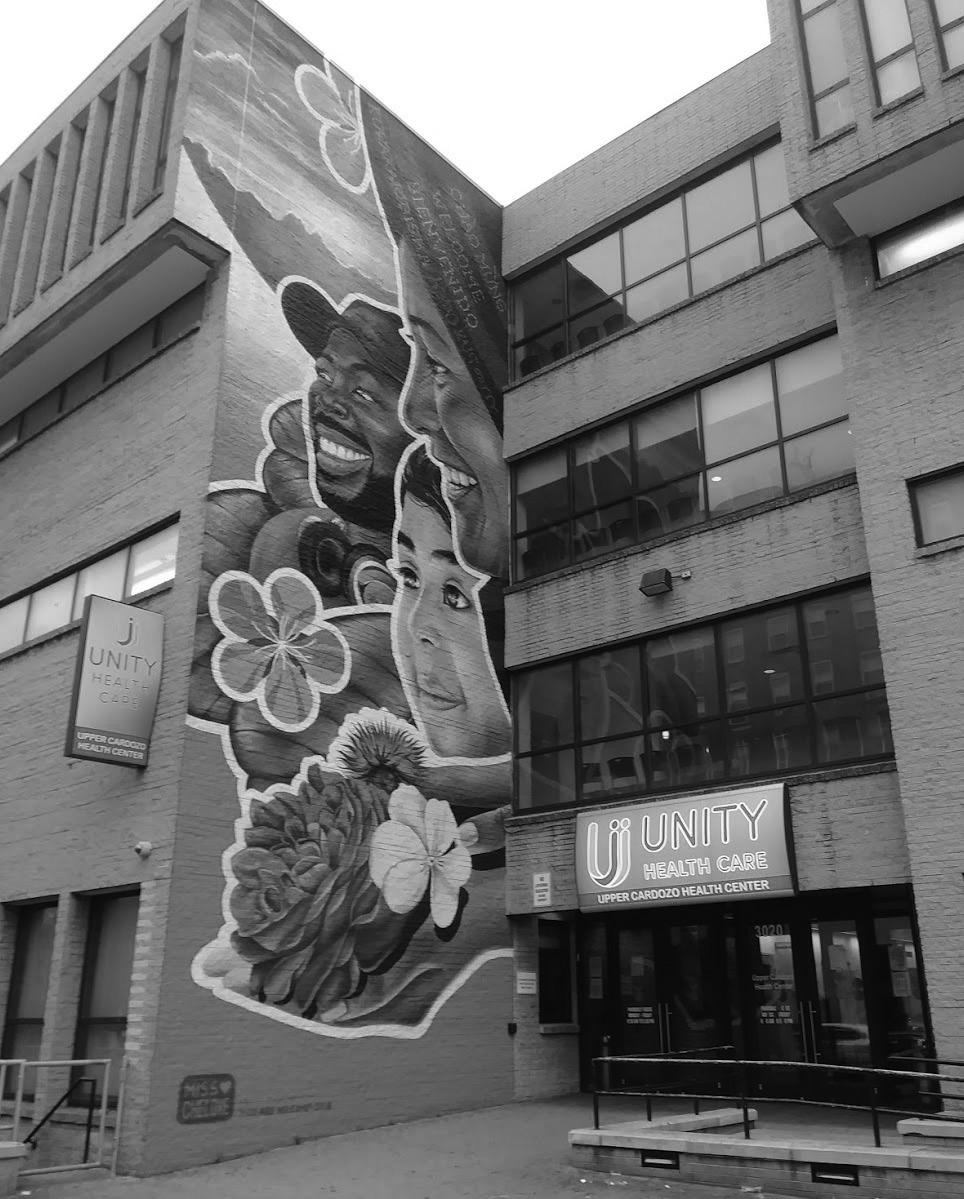
ith our recent story on the power of Java Buddies, how ironic for this Road Trip Story to begin over a cup of coffee with a long-time friend, Dr. Tuere Anne Marshall. Having recently received her doctorate in education from Morgan State University, and with a passion for using her knowledge for good, Marshall shared how her next adventure is to apply her 20 years as a professor to pursue the implementation of best practices and career opportunities for the underprepared, underserved, unemployed, and underemployed citizens within our community.
WWhen Marshall shared her passion to magnify the power of Friendship Benches, my eyes lit up. With Friendship Benches, grandmothers are taught to utilize talk therapy to support bench visitors, especially those struggling with mild to moderate mental health conditions such as anxiety and depression. The World Health Organization recognized this problem-solving therapy as a way to provide safe places in our communities for people to talk using a community based mental health technique called “talk therapy.”
People are becoming more aware of this powerful technique featured in the story “Limitless Possibilities – from Zimbabwe to the U.S.A.” from the book “Secrets to Sustainable Solutions.” With readers eagerly asking follow-up questions, Lisa and I have been brainstorming on the best way to bring the talk therapy experience to you and then the answer came to us over a cup of coffee.
When asked what inspired her to pursue her doctorate, Marshall shared her plan to get certified as a Friendship Bench Grandmother so that she can further expand this best practices to help people. She emphasized, “It is all about community.”
With her just getting started with the process, we were thrilled to shadow her experience from the beginning and she was eager to share. We knew that this worthwhile journey should extend beyond our Road Trip Story.
While the book shares stories of how “all ages can play,” today’s focus will be on digging deeper into the story called “Unlimited Resources, Starting with Grandmas.” From 2016 to 2023, two thousand community health workers (aka grandmothers) have been trained and nearly 500,000 visitors across 7 countries have joined them on the bench. These grandmothers are truly, as noted in the story, a “legend in their own time.” More on the Friendship Bench can be found on its website.
The power of possibilities with Friendship Benches was even mentioned by Dr. Julie Radlauer in our recent article on “The Promise of Tomorrow.” Following the TEDxMiami Talk, people came up to us and expressed how much they want to move forward with the concept, but said they really need a little more information on how to approach people, how to listen, and what to say, especially when a person is facing serious challenges where they are losing hope. While the technique is called talk therapy, Marshall shares how it is really about listening.
Even with a doctorate in education, Marshall describes the challenging experience of thinking in a new way.
“This has been a very intense few months learning about active listening, withholding judgments, not rushing to conclusions, and, most importantly, not attempting to fix the ‘visitors’ on the bench,” Marshall said. “Although these ideas seem logical, as a human it's been a learning curve for me to learn to listen and listen to learn.”
When we asked about key tips to share with eager community
ear Street Sense Media,
DThank you for accepting me as one of your own. On March 8, I arrived in Washington, D.C., for the first time in my life. The day before, I saw the news a Russian missile nearly struck Kyriakos Mitsokakis, the prime minister of Greece. Greece has been a NATO member since 1952. The missile fell only 500 meters (1,640 ft.) from a train he was on with Ukrainian President Volodymyr Zelenskyy. I felt like we were only 1,000 feet, considering the blast radius, from World War III. I also feel like the current “Red vs. Blue” mentality is going to get the whole planet killed. Our political leaders spend their days bickering like children while getting rich off our taxes. They get paid despite not upholding their oath to be moral and ethical leaders.
I am a 35-year-old American citizen. I’ve lived my adult life in poverty, according to our government’s definition. Over 13 years, I have lived in a motel, a car, a tent, and on the sidewalk. I’ve slept on cardboard behind a Staples store and under a bridge. That makes me a real person who can represent real people better than politicians who say they are but really aren’t. We all bleed the same color.
Right now, children are being murdered. They’re starving to death while our politicians care more about the next vote, about taking our rights away and holding on to positions they know they are misusing. Our country has way more than enough to go around, but so much of it is wasted because those in control just don’t care. Their donors and their lobbyists give their PACs enough money that they can afford to stay distracted from the pain of being immoral people.
I am not one of them. I will not be bought or bribed. I want to show the country and the world I can give us all a chance at a better future. That’s why I’m running for president. (Even if you have to write my name in.) I will do more for our country than Mickey Mouse. And I can remember what I had for breakfast.
Thank you for your time and support.
members, Marshall emphasized the objective is to empower the person. From the start, she illustrated how you patiently allow them to choose the topic by asking open-ended questions like, “‘What is the most pressing issue facing you now?’ Or ‘how does that make you feel?’” Since the focus is on empowering people to come up with their own solutions, she shared how “the key is to work toward building problem-solving skills so when the person faces an issue in the future, the person is equipped to handle the problem on their own.”
Marshall added that the phrasing of questions is imperative to prompt the person to work out the solution on their own. For example, she shared how you can ask questions like “What would you advise a friend to do?” Marshall expressed the importance of “helping the person reach their own answers versus telling them what to do.”
Reflecting on our Road Trip Story experiences, Lisa and I noticed that “hope” and “judge-free zones” were terms that came up repeatedly. Marshall shared, “It is common for the visitors to share the ways in which Grandmothers restored their ‘hope.”’ In much the same way, on our Equine Therapy adventure, the veterans shared how horses naturally provide a safe, judge-free zone. As people, we may need to remember that we are all human.
Marshall describes how “The bench experience and even a conversation using the talk therapy approach create safe, confidential spaces for healing. These will be effective ways to support mental health in our community, and I look forward to being a part of this meaningful journey.”
We also look forward to sharing our journey on YouTube.
I began to think about how my 36-inch cane would look if I put the things I had on my car on it, like a fly pimp grill and a fifth wheel on the back.
I’ve been on my project for five years.
I had a lawyer do a patent search for $395. And I received my U.S. patent from the Virginia patent office in 90 days after paying $1,700.

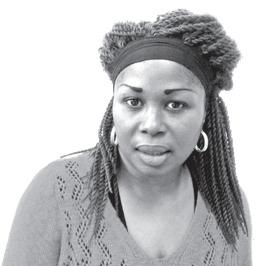
A mother holds her family together through thick and thin. She sacrifices and it has no bounds. From the moment we take our first breaths, our mothers are there, nurturing us, guiding us, and molding us into the people we are. They are our first teachers, spewing wisdom and values that influence us and get instilled in us.
Mothers have to have a lot of patience to take care of us and they tend to us whenever we need them. As we grow older and become our own person, our mothers may find it hard to see their children become adults and leave them, but they give space so that we can have wings to fly on our own.
Mothers are the unsung heroes who juggle so many roles at once. They are our nurturers, protectors, teachers, friends, and confidantes. Their love is a constant and safe space in a world that can be cruel and hurtful. When they grow and get older, they’ll need people to support them just like they did for us. They are our pillars of strength, and when they need them, we’ll be there for them as well.
Mothers will forever be appreciated. Their love, sacrifices, and devotion shape our lives, reminding us that true strength lies not in might, but in the heart of a mother.
Happy Mother’s Day!
GRETA CHRISTIAN
Artist/Vendor
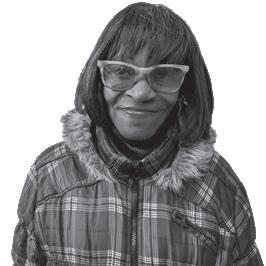
It’s coming on May 12!
Unfortunately, I don’t have a mother here with whom to celebrate because my mother is in heaven. But I still tell her “Happy Mother’s Day!” because everyone should celebrate this holiday.
Mother’s Day is a song. Mother’s Day is a celebratory card.
Love your mother all the time. Honor your mother always. Keep your mother happy. Give. Your. Mother. All. Your. Love!
ANTHONY
CARNEY Artist/VendorMama, Mama, you are my greatest love. When I get hurt, you console me and tell me it’s going to be alright. When I’m down and out, you are always there to comfort me. Thank you, Mama, for being my mother and my father. You are a good, good mother. How great thou art!
Spread Love!
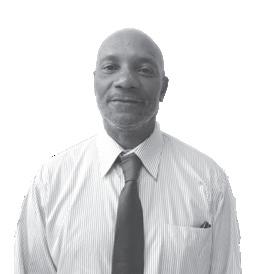
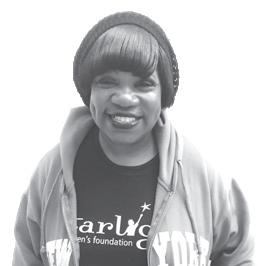
My mom will be truly missed this Mother's Day. She was my everything, my forever rose petal. I will always cherish and honor my mom, and all the beautiful memories. I miss her laughter and beautiful smile.
She was my best friend. We shared a lot of good times. We would talk about everything. She and I are both Capricorns. I cry tears and have aches from not hearing her voice anymore. We talked every day.
She will be missed by me and my family. Mom is with my dad in Heaven, smiling down and shouting “No more cancer pain.” She has a new body with no sickness.
I’m imagining the most beautiful Mother's Day celebration with love and a special dinner for two by candlelight. I will be sending my mom lovely Mother's Day balloons, special big red and pink ribbons, and a bouquet of violets and roses.
The special choir birds, the sparrows, are chirping and singing joyful soul music for my mom. Happy Mother's Day. I love you always. You will be greatly missed. I will see you and dad one sweet day. We will all be together as one with the rest of my family.
Here are some Mother’s Day songs:
“Sadie” - The Spinners
"As" - Stevie Wonder
ANDRE BRINSON Artist/Vendor
Dear mother, I remember, though it seems like yesterday, when I seen your life almost taken from me and my family. Surely God knows his true pure spirit is within you, mother, my queen, my friend, my love. Now I am watching you living in peace with “cancer” and still your spirit is as high as Heaven. Momma, I remember the day you told me that when I was born you had complications with having me, that you were going to give your life for me to be born. I so love you mama, and I thank God for you forever. To all the mothers, know you are appreciated. One love.

JACKIE TURNER Artist/Vendor
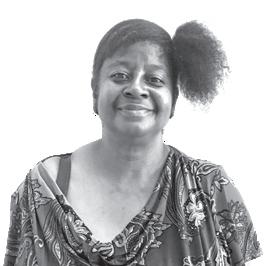
Mothers are most important! Without moms, there would be no one. Along with God, mothers create, carry, and bring to life every living thing. Mothers nurture, groom, and influence. The hand that rocks the cradle rules the world.
Not all women are moms and sometimes men take their place. We agree that mothers are good to have, and we love them.
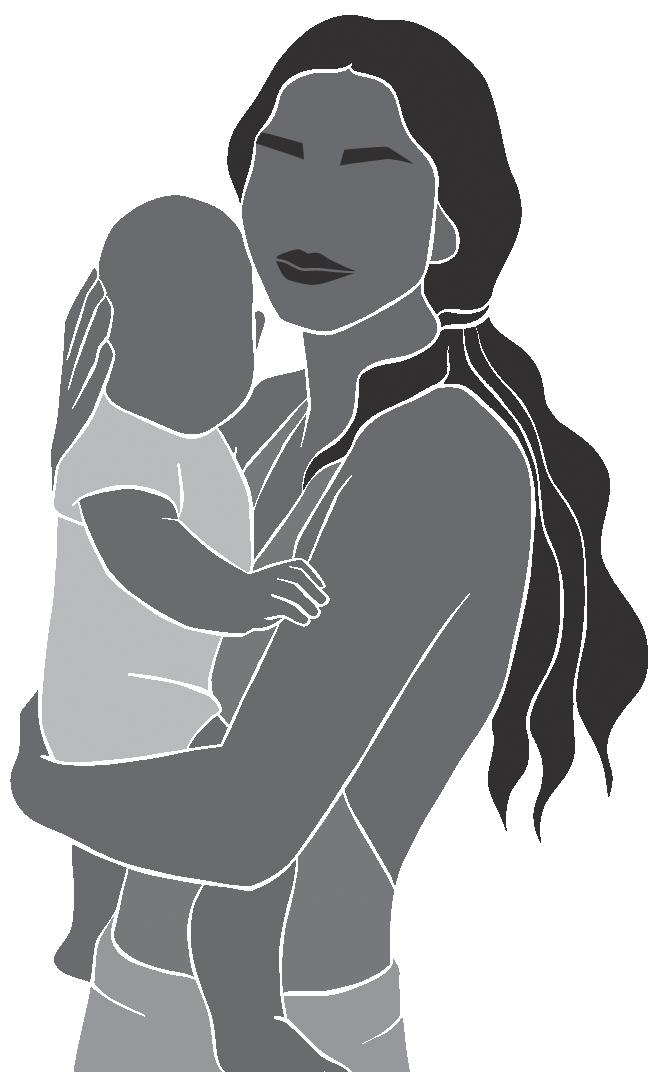
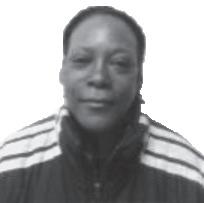
Have you ever heard of the laws of attraction? These are the thoughts we put in our heads when positive or negative things come to life. Most of the time, they say that if what you say out of your mouth is positive, you will get positive things back instead of negativity. But if you say negativity all the time, then you will only get back negativity.
These are the things that we call laws of attraction. Say if I'm having a really bad day. Say I wake up in the morning just on the wrong side of the bed, as people say. And I stubbed my toe on the end of my bed. Automatically, I think I'm going to have a bad day so I get up and say I bet I missed the first bus, I bet I’ll be late. I get to the bus stop, and what happens? The bus is not there, it's not on time, it's late. Then I bet you when I get to the office someone ain't come to work, and I'mma have to do her work and mine. I get to the office and such and such is not there, and I have to do her work and mine. The things you say out of your mouth, you make it happen.
So if you believe in this kind of stuff, take the time to always try to think positively. Be grateful in the morning when you wake up, be grateful to have opened up your eyes, and thank God for you being alive another day. Somebody is not here today, today is not promised to everyone. But of course, it's promised to you, as you can see. And remember every day is not going to be a good day, some days are going to be bad days. That's just part of life. Sometimes things go right, sometimes things go wrong. We all have our ups and downs, we all have our problems, but just remember to be grateful for what you do have. You might not have a brand-new BMW, you might have a Toyota Camry, but be grateful. You might not have a T-bone steak, you might have a hamburger, but be grateful. Be grateful for the things you receive, and stop complaining about the things you don't have. Be grateful. As you can see, I'm working on some things in here, doing my best to keep up my good work. I'm doing pretty good. I hope you enjoy this message. This is for you who need it. Stay positive, thank God for being alive today. May God bless you. Be safe and be sober and clean.
Please stop the gun violence
No more killing, please
Kids, young adults, and adults are being killed in the DMV I wish that it would stop because it is so sad I was in the crossfire of gun violence and I was very afraid I felt bad and hopeless when I was in danger and I could have lost my life but thank God I am still here on the earth
Don't smoke our brothers
Don't smoke our sisters
Don't smoke our children
Don't smoke anyone else
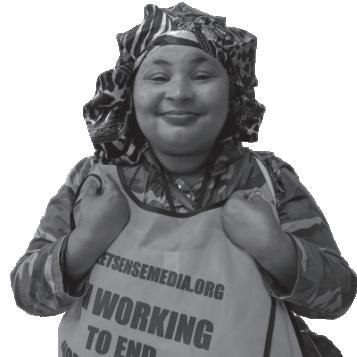
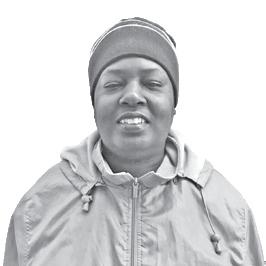
Like a tree wavering its foliage in the air, its fruitfulness is sweet to taste. Looking at its strength in their back and branches. The roots are sturdy and long to balance its weight on the foundation of good soil. Like planting good seeds that spring up with good fruit in rich soil. Like a cactus knowing it cannot be destroyed by the sun because of the living water that flows within. Like rain that flows and replenishes the earth while cleansing the air, so we can breathe fresh air and feel the stress-relieving, relaxing cool breeze. Like looking up at the sky, searching for truth and security. Like a runner who’s going through hurdles. Like the land soaking up water to hydrate all living things so people can live wonderful lives free on earth.
Your love is like a treasure chest that I lost at sea
Your touch was like silk cloth until I cut it
Your kisses I miss
Your presence I reminiscence
Our love has been through a test
The good and the bad
And when I think about our present situation it makes me feel sad God has forgiven me for all the wrong I have done And now I know my life has just begun
There’s always another chance for me to get it right but I must fight the good fight and stand for what's right
My love
You are a wonderful person inside and out
Synchronicity is when the total output of an individual's work makes the total of everyone's work greater. That is Marxism or the basis of real communism. Doesn't sound so bad, does it? I'll bring the hammer if you'll bring the sickle.
As summer passes, the birds begin to fly south for the winter. The bricks and wood and steel of houses become pale. The leaves are seen emptying the trees, drains become a clog for recycling, and the sun is more in favor of the south. This is a paragraph of a story that plots life in humanity.
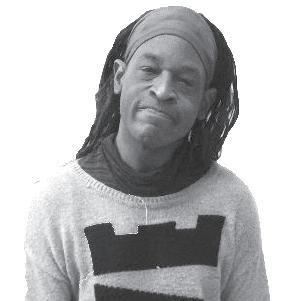
When this world was made, we walked first to know all the animal’s natures. To wake up one morning, to know pain and the path.
A walk with Jesus is knowing that you are never alone. He said, “I got you.” He has always been there, not for just me, but for everyone. A path, your world, your pain, your sadness, and your depression, he takes them away. When we are out there, when we think we are alone, we are not. He has said, “I will never leave you.” And he never has. From birth to death, from your waking day to your dying breath, he’s got you.
You are in the comfort of God. His love, his grace, and his mercy will shield you.
In the city where I grew up, we would fight people in the neighborhood or people we had beef with, but we'd live to see another day
We didn't pick up no guns
Our hands was our gun
We would fight after school, at the bus stop, or the go-go, But we made it home in one piece What happened to the city and neighborhood where we grew up?
When I was coming up as a teenager in D.C. in the 90s, there were things for us to do in the city like summer jobs, summer school, and a back-to-school concert. You tried to win a ticket on the radio or save up your money for some new shoes, Jordans, and nice clothes. We paid for our school clothes and made sure we had bus fare and Metro fare. We would go to the mall, Union Station, or the movies, and then we would go back to school. It was OK. At the time, there was more things for the youth to do in the city instead of hanging in the street and getting into trouble.
And one should not have been without your love
I choose not to forget
But the way I treated you I truly regret I pray one day we can reunite
So I can see the light one more time in your love
God bless you Love always
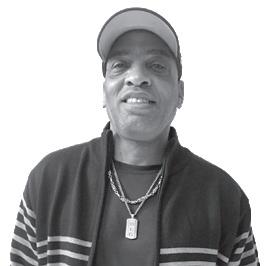
When we walk alone, when we pray, when we wake up, he takes it away. He gives you his grace. He is like a breath of air. His mercy lightens our body so we can get through it.
He respects all his children. He helps each and every one and never asks for anything in return. Know you are blessed, that he loves you. Know your mother and father, your sister and your brother. Show them love, and care for them as much as you can. Have a deep love for all of God’s children. The walk.
Watch Your Temper!
Across
1. Light bulb unit
5. Chubby
10. German-made luxury cars (initialism)
14. Victims of the Morlocks in “The Time Machine”
15. Old Testament book of prophecies (A SHOE anagram)
16. Artificial bait
17. Common product improvement slogan (3 wds.) (6.3.6) (BITTER END BEGGAR anagram)
20. “60 Minutes” regular Lesley 21. Bit of embellishment
22. Charlotte-to-Raleigh dir.(abbr./initialism)
23. They might be wall-mounted (abbr.)
25. Person in a mask who may call out attempted thefts, briefly
27. Item employed as both a toy and weapon by Aboriginal peoples down under, colloquially (2 wds.) (6,9) (A BOURGEOIS MENSA anagram)
36. Bag-checking org. (abbr./initialism)
37. Greet and seat (2 wds.) (3,2)
38. Cattle ranch hand, at times
39. “___ be a cold day in hell ...”
41. Archaeological find
43. 1/500 of the Indianapolis 500
44. A Donald Duck nephew or a shrimp dish
46. Happen again
48. Mets’ and Nats’ div. (abbr./initialism)
49. Like Joaquin Phoenix’s the Joker or Robert de Niro’s Travis Bickle, say (2 wds.) (7.8)
52. Food stat. (abbr./initialism)
53. TV and film star Lucy known for projects like “Ally McBeal,” “Kill Bill,” “Charlie’s Angels”, and “Elementary”
54. “Skip to My ___”
57. ____ Lauder (cosmetics industry icon)
61. Bacon bit
65. Therapeutic technique for destructive hotheads...and a hint to a word jumbled in the 3 answers with circled square groups (2 wds.) (5,10)
68. Cheat
69. “SNL” alumna Cheri
70. Lodge fellows named after reindeer kin 71. Malady that rhymes with the body part it affects
72. “The Golden ____” (sitcom with Blanche, Dorothy, Rose & Sophia)
73. Egg on
1. Structures built by spiders or browsed by surfers
2. Came down
3. Robe for Caesar
4. Ballet attire
5. Group of words (abbr.)
6. Half of one is said to be “better than none”
7. “Anchors Aweigh” readiness gp. for citizen sailors (abbr./initialism)
8. ____Care (Gov’t. health care pgm. for senior citizens enacted during the LBJ administration)
9. Baby food
10. Short order sandwich, for short (abbr./ initialism)
11. Zoom feature participants must frequently be
reminded to undo when they wish to speak
12. Small songbird
13. Arid
18. “The King” who reigned at Graceland
19. Frustrated Fudd with a double-barreled shotgun who’s on the trail of a certain “wascawwy wabbit”
24. Fortuneteller (echoing anagram of 13-Down)
26. Annual high school dance
27. Leaning
28. “Hey, we want to be included!” (2,3)
29. French toast? (Fr.)
30. Like many a frat party - beverage-wise
31. De-squeaked, as hinges
32. Chilling words (2,3)
33. Imitating
34. Palindromic women’s name found in “excellent”
35. “Wall Street” theme
40. Said twice, it can lead to some trousers getting torched
42. Hair piece?
45. Church or Tribal leader sought for advice
47. Bring up
50. Pall that may prompt mass tearing up in Hollywood (2 wds.) (2,4) (incls. abbr./initialism)
51. Eggnog sprinkle
54. Workplaces where white coats are worn, briefly
55. “Don’t bet ___!” (2 wds.) (2,2)
56. Hideous
58. Jacques of “Mon Oncle” fame
59. Part of DOE (abbr.)
60. ____ Grey tea
62. Move, in Realtor-ese
63. “___ Dinka Doo” (theme song of Jimmy Durante)
64. Combat veteran’s affliction, perhaps (abbr./ initialism)
66. Squeeze (out), as a living
67. Dogfaces
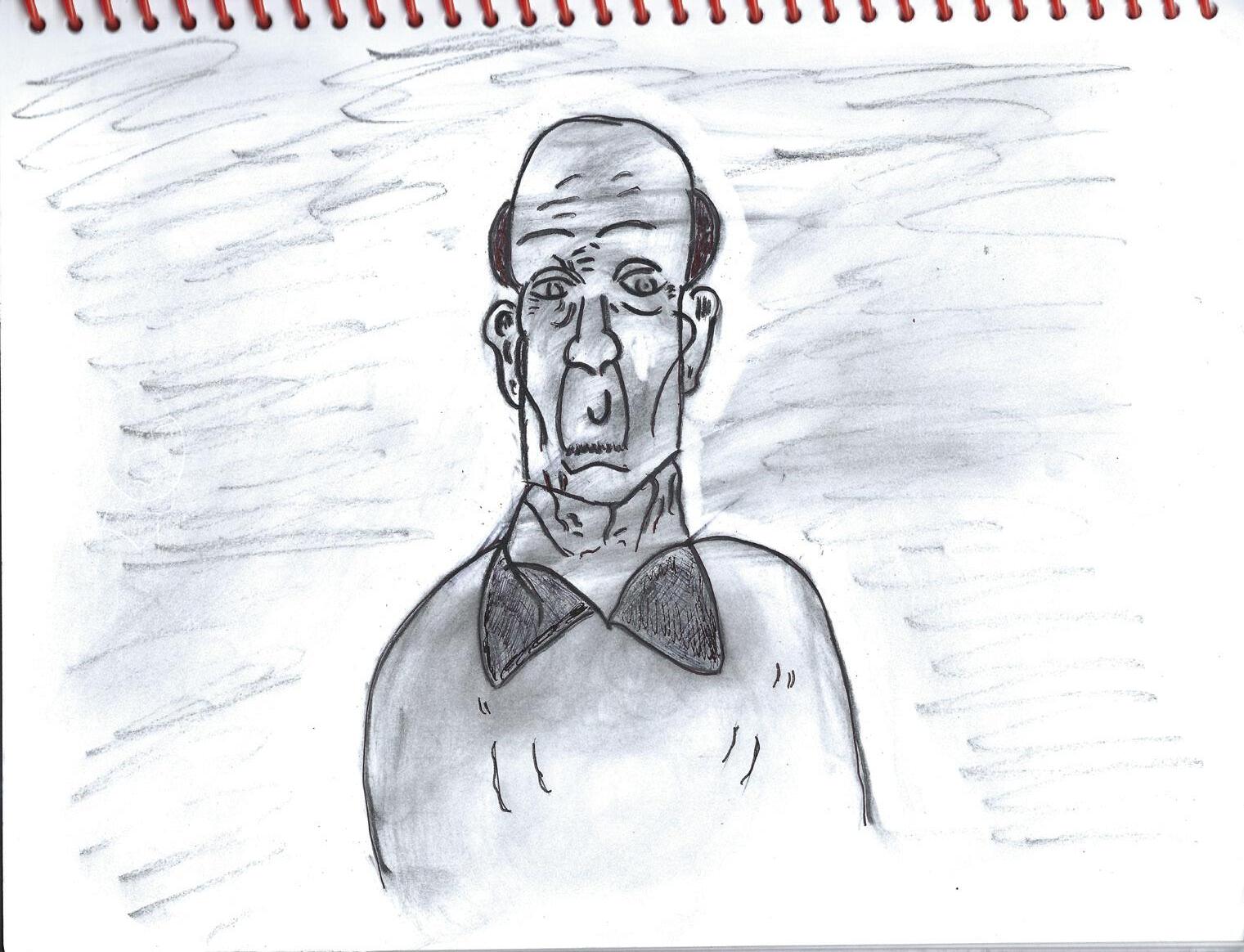
This crossword puzzle is the original work of Patrick “Mac”McIntyre. It is provided to us courtesy of Real Change News, a street paper based in Seattle, Washington. Learn more about Real Change News and the International Network of Street Papers at realchangenews.org and insp.ngo.
“Forced to be naked, in a new world that's cold. After a while, I’m covered up with rags that I had to sneak and find. I want to get to the riches I have heard of. Am I not grateful to be a free slave? I'm not free, just being controlled differently. With these rags, I'm marked for death. My riches are reading and learning, oh, I should really be grateful. I have Black privilege. I can read. From slaves to homeless, being paraded around, now having parades to make money to hold me down, my riches are being taken away. They love to see me in rags, so they use their riches to create the gear they believe I should wear. We are not twins or triplets, just paternal instincts. Ragging on me for the stigmas you put on me. If you connect the dots, you will see we died so you could have riches. You stole our kids to create your machines. Who cooked? Who cleaned? Who was the entertainment? It was sick love, with rape and torture. Now history has come back to bite you! So you're using your riches to delete it. As long as these rags are seen, you will never be happy with OUR RICHES!! My focus is on the here and now that's messing up our future. From riches, the effect is causing rags.”
Housing/Shelter Vivienda/alojamiento Case Management Coordinación de Servicios
Academy of Hope Public Charter School
202-269-6623 // 2315 18th Pl. NE
202-373-0246 // 421 Alabama Ave. SE aohdc.org
Bread for the City 1525 7th St., NW // 202-265-2400 1700 Marion Barry Ave., SE // 202-561-8587 breadforthecity.org
Calvary Women’s Services // 202-678-2341 1217 Marion Barry Ave., SE calvaryservices.org
Catholic Charities // 202-772-4300 catholiccharitiesdc.org/gethelp
Central Union Mission // 202-745-7118 65 Massachusetts Ave., NW missiondc.org
Charlie’s Place // 202-929-0100 1830 Connecticut Ave., NW charliesplacedc.org
Christ House // 202-328-1100 1717 Columbia Rd., NW christhouse.org
Church of the Pilgrims // 202-387-6612 2201 P St., NW (1-1:30 on Sundays only) churchofthepilgrims.org/outreach
Community Family Life Services 202-347-0511 // 305 E St., NW cflsdc.org
Community of Hope // 202-232-7356 4 Atlantic St., NW communityofhopedc.org
Covenant House Washington 202-610-9600 // 2001 Mississippi Ave., SE covenanthousedc.org
D.C. Coalition for the Homeless 202-347-8870 // 1234 Massachusetts Ave., NW dccfh.org
Father McKenna Center // 202-842-1112 19 North Capitol St., NW fathermckennacenter.org
Food and Friends // 202-269-2277
(home delivery for those suffering from HIV, cancer, etc) 219 Riggs Rd., NE foodandfriends.org
Foundry Methodist Church // 202-332-4010 1500 16th St., NW foundryumc.org/idministry
Identification services
Friendship Place // 202-364-1419 4713 Wisconsin Ave., NW friendshipplace.org
Georgetown Ministry Center // 202-338-8301 1041 Wisconsin Ave., NW georgetownministrycenter.org
Jobs Have Priority // 202-544-9096 1526 Pennslyvania Ave., SE jobshavepriority.org
Loaves & Fishes // 202-232-0900 1525 Newton St., NW loavesandfishesdc.org
Martha’s Table // 202-328-6608 marthastable.org 2375 Elvans Rd, SE
2204 Martin Luther King Ave. SE
Miriam’s Kitchen // 202-452-8926 2401 Virginia Ave., NW miriamskitchen.org
My Sister’s Place // 202-529-5991 (24-hr hotline) mysistersplacedc.org
N Street Village // 202-939-2076 1333 N St., NW nstreetvillage.org
New York Avenue Shelter // 202-832-2359 1355-57 New York Ave., NE
Patricia Handy Place for Women 202-733-5378 // 810 5th St., NW
Samaritan Inns // 202-667-8831 2523 14th St., NW samaritaninns.org
Samaritan Ministry 202-722-2280 // 1516 Hamilton St., NW 202-889-7702 // 1345 U St., SE samaritanministry.org
Sasha Bruce Youthwork // 202-675-9340 741 8th St., SE sashabruce.org
So Others Might Eat (SOME) // 202-797-8806 71 O St., NW some.org
St. Luke’s Mission Center // 202-363-4900 3655 Calvert St., NW stlukesmissioncenter.org
Thrive DC // 202-737-9311 1525 Newton St., NW thrivedc.org
Unity Health Care unityhealthcare.org - Healthcare for the Homeless Health Center: 202-508-0500 - Community Health Centers: 202-469-4699
1500 Galen Street SE, 1251-B Saratoga Ave NE, 1660 Columbia Road NW, 4414 Benning Road NE, 3924 Minnesota Avenue NE, 765 Kenilworth Terrace NE, 850 Delaware Ave., SW, 3240 Stanton Road SE, 3020 14th Street NW, 425 2nd Street NW, 4713 Wisconsin Avenue NW, 2100 New York Avenue NE, 1333 N Street NW, 1355 New York Avenue NE, 1151 Bladensburg Rd., NE, 4515 Edson Pl., NE
Washington Legal Clinic for the Homeless 1200 U St., NW // 202-328-5500 legalclinic.org
The Welcome Table // 202-347-2635 1317 G St., NW. epiphanydc.org/thewelcometable
Whitman-Walker Health 1525 14th St., NW // 202-745-7000 1201 Sycamore Dr., SE whitman-walker.org
Woodley House // 202-830-3508 2711 Connecticut Ave., NW
For further information and listings, visit our online service guide at StreetSenseMedia.org/service-guide
cook
Martha Dear // 3110 Mt Pleasant St. NW
Full time, Wednesday-Sunday
Cooks work all stations. Responsibilities: prep food for service; set up and stock stations with all necessary supplies; prepare menu items; comply with nutrition and sanitation regulations and safety standards; stock and record inventory appropriately; breakdown and clean station post service.
Required: One year in a professional kitchen
Apply: tinyurl.com/MarthaDear Tortilla prep
Taqueria Xochi // 1850 K St. NW
Full time
Master the art of tortilla preparation. Follow recipes to create consistent and flavorful tortillas. Maintain a clean and organized prep area, upholding hygiene standards. Collaborate with the culinary team to ensure a seamless flow of tortillas for service.
Required: N/A
Apply: tinyurl.com/TaqueriaXochi
Porter
Jubilee Housing // Washington, D.C.
Full time
Job duties are the overall maintenance of the apartment buildings and all areas related to the operations of the community. Duties include: keeping buildings in clean and orderly condition; operating motor-driven cleaning equipment, washing walls and glass and removing trash; landscaping; assisting with unit turnovers.
Required: Be prepared to provide 3 professional references if you are selected.
Apply: tinyurl.com/JubileeHousing
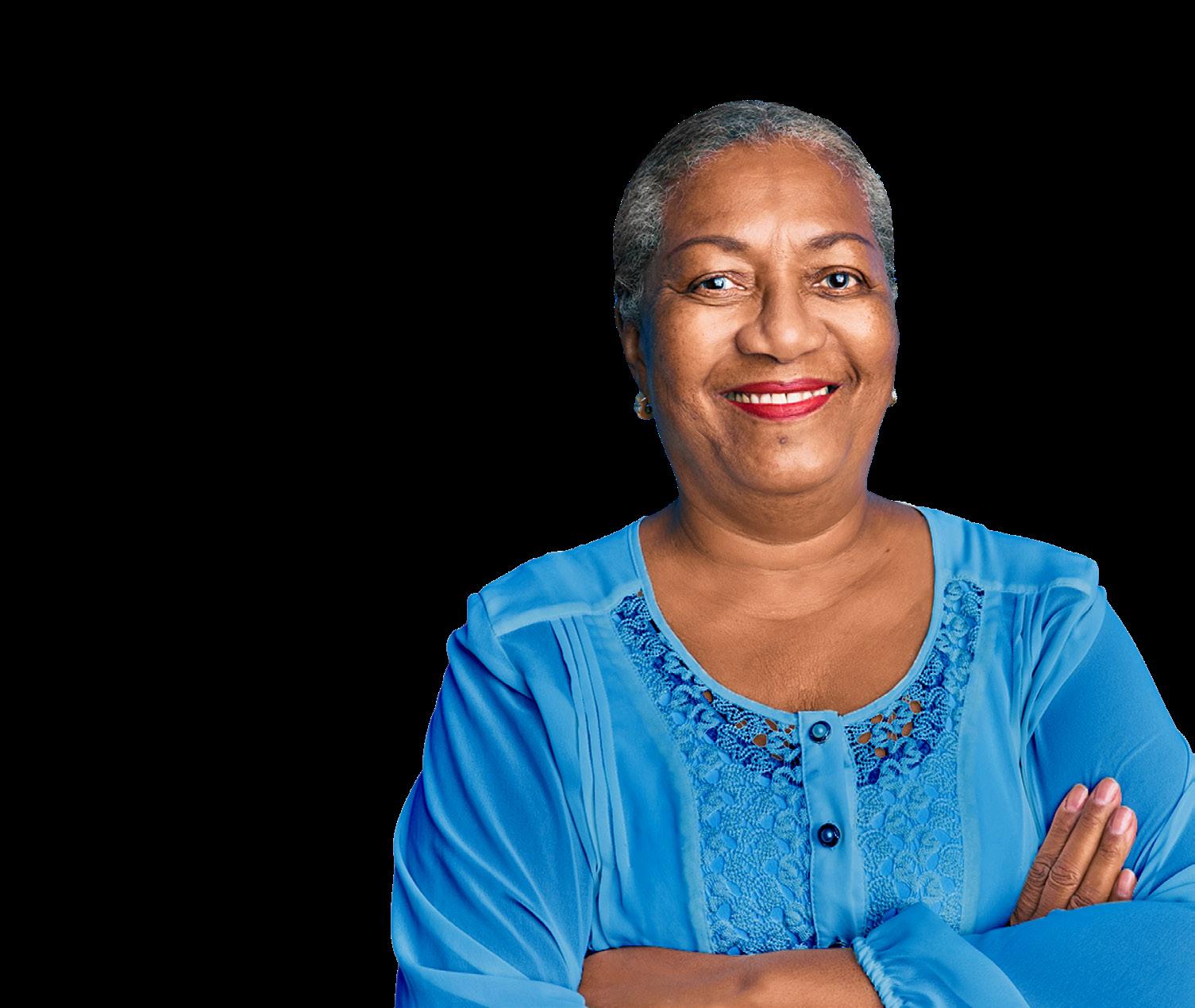
DC Medicaid sends renewal info by mail. Check your mail and renew. Don’t risk losing your coverage.
3 Update your contact information and check or renew your coverage at districtdirect.dc.gov.
3 Fill out the forms anyway. Even if you’re not eligible, your kids may be.
If you have questions, call us at 202-727-5355.






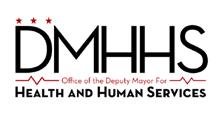





 ROCHELLE WALKER Artist/Vendor
ROCHELLE WALKER Artist/Vendor
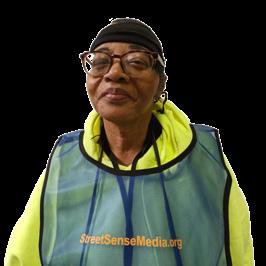
The street is just a place we meet
The two of us can turn this house into a home
A room is just a room
When I climb the stairs
The stairway to heaven
We are going up and up
Looking out the window reminds me of my space
When I put the key in my door
It remains home sweet home
A kitchen is just a kitchen
When the holiday comes
A meal is just a meal
Without anyone to share it with
So when the two of us get together
Let us turn this house into a home
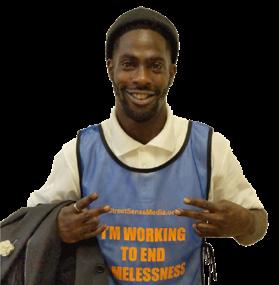
“Yes, I am for the struggle, but know that I am not for struggling my whole life.”
